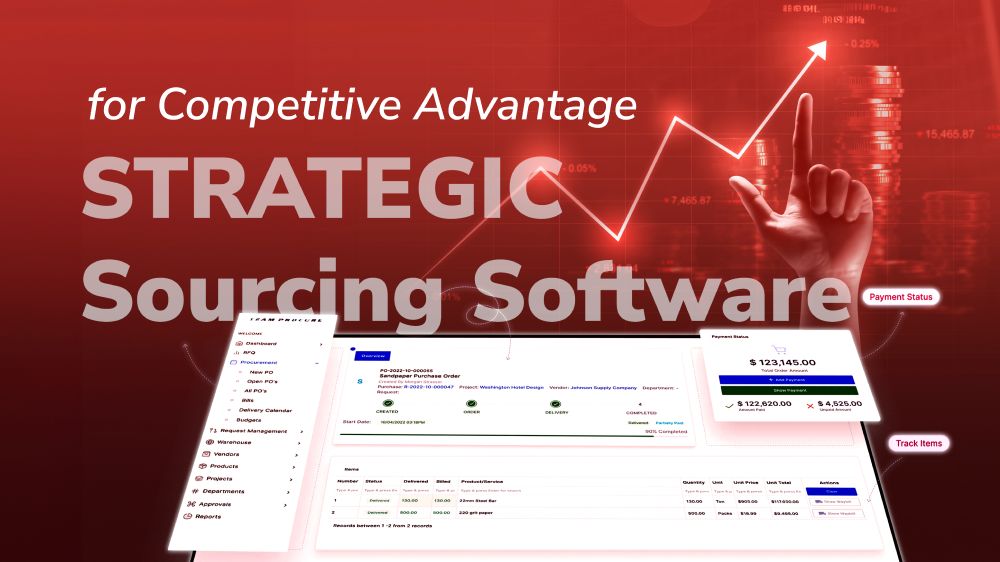Check These Key Points Before Signing a Software Development Contract

Content Map
More chaptersOne of the crucial steps prior to sourcing and choosing the right software development outsourcing company is getting to know the outsourcing contracts. Why is it important anyway? A win-win contract provides legal protection for both parties within the outsourcing partnership, and it serves as a reference point in case of a disagreement, misunderstanding, or dispute between the two sides. Without one, you are putting your project at stake or, even worse, failing. Therefore, in this article, let us back you up with the basic knowledge about a software development agreement, which will later be useful for you one way or another.
What Is a Software Development Contract?

In the simplest terms, this refers to a legal agreement between two parties – you and your software development outsourcing partner about the mutual obligations, liabilities, and expectations in a partnership over a project. It sets out the terms and conditions of developing, modifying or maintaining software. A decent software development contract should cover the project scope, specific deliverables for both parties, time frame, payment terms, ownership, and intellectual property rights, dispute resolutions, maintenance services, warranties, and more related details.
Different Types of Software Development Contracts
A software development agreement can come in the form of many different outsourcing models, and they vary significantly depending on the purposes, cost structure, and other factors. Here are some basic contractual types:

Fixed-price Contract
According to this software development outsourcing model, the client agrees to pay the contractor to deliver the results within a predetermined timeframe and a set budget. In other words, the project cost is fixed, and no additional fees are allowed, regardless of any delays, changes, or modifications made during the development process. This way, clients keep their projects rolling without worrying about overhead or unforeseen expenditures. Accepting fixed-price contracts, however, also means that you have little to no flexibility to make many adjustments to your project on the go.
Because of those, this contract type works best for low-budget projects or those that are well-planned, expecting that software requirements, scope, timeframe, resources, and the final budget must be clarified and decided long before the software development work even begins.
Time-and-Materials Contract
In time-and-materials contracts, you pay the contractor for the actual number of hours each software developer dedicated and the third-party materials used over a certain project timeline, giving you transparency into how and where spending is allocated at any stage of the SDLC. As such, you gain the ability to adjust budgets if additional work hours and costs are required to bring the final product to completion. It also becomes much easier in case you need to cut down on resources, halt projects, or change priorities. Plus, you will have no concern about unanticipated expenses from complex builds or customizations. Therefore, long-term projects should opt-in for these contracts as they often have unpredictable workloads and duration.
Dedicated Development Team
Committing to this contractual format, you contract with dedicated professionals to work on your projects as your permanent employees. By its essence, a dedicated development team has no difference from your in-house team, except that personnel is recruited and managed by the service providers. Often, such teams include a full-time or part-time project manager and QA engineers.
In this approach, you do not have to wait for contractors or push them to prioritize your tasks over other commitments, as your dedicated team is always available when you need them. As you gain the full attention of developers for your project and access the required resources, your business can be benefited from better stability. Moreover, under this agreement, you have the flexibility to scale or downsize your teams to align with the technical requirements. Partially due to those benefits, the dedicated team contracts likely cost more than other types, and they are suitable for those who come with complex project requirements requiring more resources and talent.
Capped Budget with Accelerated Bonus
This outsourcing service contract type is the same as the fix-priced one as it specifies the final budget upfront, except that contractors are compensated fairly and extra for their efforts and contributions when the project is completed on time or ahead of schedule. This type of contract is great for boosting the morale and productivity of development teams, which is suitable for projects with tight deadlines. However, it also comes with some risks that a vendor or team may forgo the quality for the sake of time and incentives.
Look Out for These Key Elements in a Software Development Contract
Apart from the contractual type, there are several other aspects to consider when crafting a software development agreement. With a balance between agility and flexibility, a solid contract is constituted of carefully negotiated elements mentioned:

Project Scope & Service Description
First things first, the agreement must specify what you expect from the outsourcing partnership and what your partner is responsible for delivering. In other words, the scope of work and specifications required for the project should be clarified and listed in the contract, ranging from resources, timeline, tools, software as well as processes in use, maintenance services, and so forth.
Payment Terms & Conditions
These elements must be agreed upon and secured in order to avoid any dispute arising later on. You should take certain factors into account, including rates for particular tasks, the payment schedule, the mode of payments, and so on. Moreover, in case you are collaborating with a contractor under a different jurisdiction, then specific cross-border payment regulations need to be considered before entering into an agreement.
Project Ownership & Intellectual Property Rights
Intellectual property rights are an important aspect of software development agreements. Your contract should clearly outline who owns their work product or deliverables when the project is completed so that you know for certain what you are getting out of it. Additionally, it must be written in detail as to how both parties will handle changes and updates to the codebase throughout its lifecycle.
Acceptance Testing & Quality Assurance
Your contract should include provisions regarding quality assurance and testing processes. This section will accurately indicate how you verify and measure the quality of the deliverable, what testing methods and tools you will employ, at what development stage acceptance testing should begin, how much time it should take as well as how to deal with defects or bugs that may be found after delivery if any. Please note that both parties have the responsibility to perform testing to ensure that the final product is wrapped up satisfactorily and up to standard.
Confidentiality & Data Security
This is an essential part that should be included in the software development contract, especially if the project involves your confidential information or trade secrets. It should outline what info is stipulated confidential and the roles and responsibilities of both parties in storing and safeguarding sensitive data, managing access requests, etc. Also, you should set out liability terms in case of any data breach or information disclosure.
Termination Clauses & Dispute Resolution
Last but not least, you must agree on a set of termination clauses so that either party can end the agreement in case of unforeseen circumstances or dissatisfaction arising from any particular aspect. These clauses could include requirements for payment, rights over source code, ownership of data generated during the project, etc. Additionally, dispute resolution clauses should also be incorporated into the contract so that any potential disputes can be resolved amicably rather than resorting to legal action.
From the perspective of a service user, a well-crafted software development contract legally protects you from potential risks of financial losses, disputes, sub-par quality deliverables, or, even worse, project failure. And it buys you a guarantee of the successful project completion and results you desire. Please note that both parties share the same rights and duties to treat the contract fairly, and you and your partner also have the privilege to renegotiate the terms and conditions of the agreement as long as they are in consensus. Be sure to discuss all the necessary details with your vendor and use legal assistance to check the legal aspects of the document. If you are casting around for professional software development services or competent help to draft a win-win agreement, contact Orient Software.







